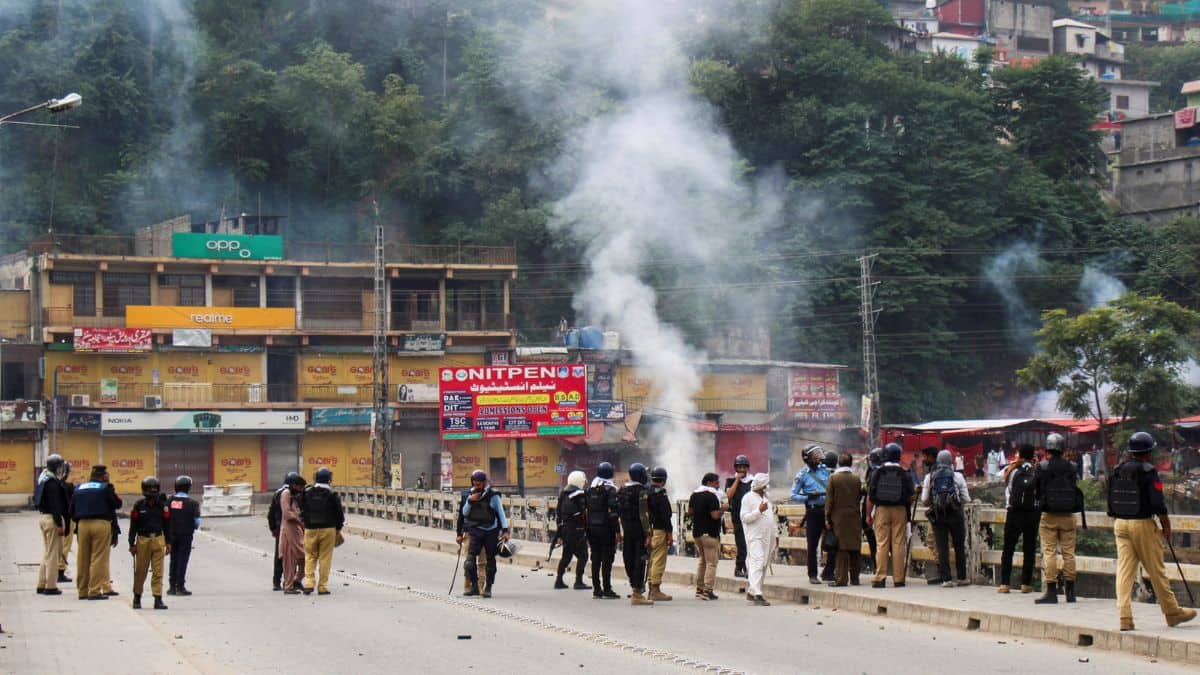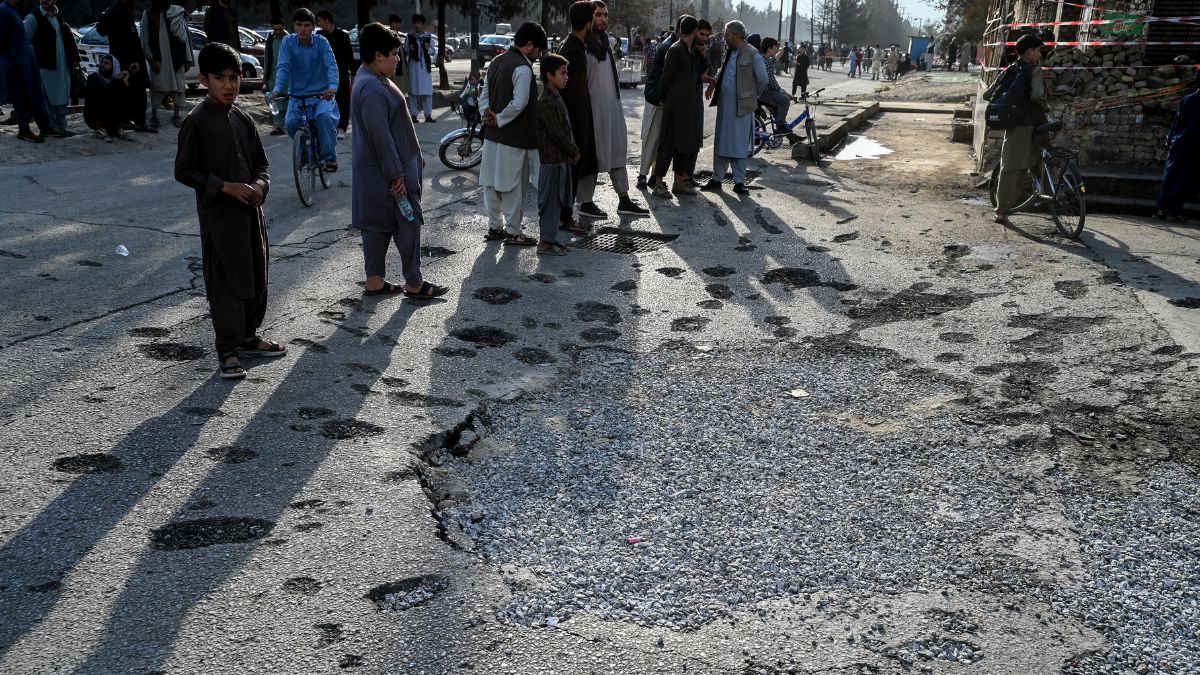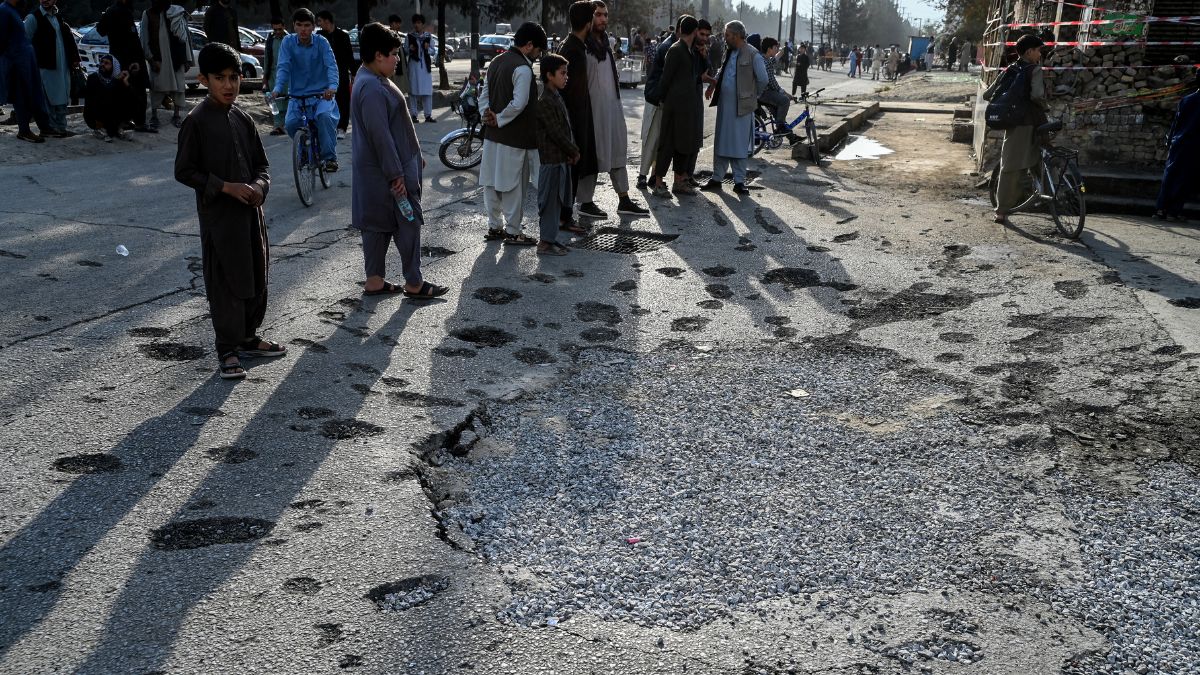When the dust settled over Bahawalpur after Operation Sindoor, what emerged was not only the ruins of a terror stronghold but also the disquieting silence of a family in mourning. The Jamia Masjid Subhan Allah complex – long considered the nerve centre of Jaish-e-Mohammed (JeM) – lay shattered. Ten members of Maulana Masood Azhar’s family were killed in India’s strikes: his mother, his elder sister, her husband, and several children.
Even JeM’s own Ilyas Kashmiri was later heard at the Mission Mustafa Conference in Pakistan’s Punjab, admitting that Azhar’s kin had been “torn into pieces” in Bahawalpur. And now, from that rubble, emerges a chilling new symbol of reinvention – JeM’s first-ever women’s wing, Jamaat-ul-Mominaat, headed by none other than Sadiya Azhar, Masood Azhar’s sister, who lost her husband in the Indian strikes.
The announcement of the terrorist outfit’s women’s brigade came from its propaganda wing, Al-Qalam Media, and marks an inflection point in Pakistan’s militant ecosystem: the formal entry of women into one of the subcontinent’s most virulent jihadist networks. But beneath the headline lies something deeper – a carefully calculated shift in terror strategy, cloaked in gender and grief.
Gendered and Familial Radicalisation
JeM’s move is as psychological as it is operational, and the timing is not accidental. Just weeks after Operation Sindoor, in August 2025, reports emerged of the group’s open fundraising campaigns to ‘rebuild’ its Bahawalpur headquarters and establish 313 new markaz across Pakistan, with a hefty target of 3.91 billion Pakistani rupees. This money is allegedly being routed through untraceable digital wallets and mobile numbers all associated with the Azhar family, a sign that Pakistan’s so-called proscription remains paper-thin. This revival attempt, camouflaged as community rebuilding, was accompanied by the launch of a women’s unit, signalling JeM’s determination to adapt, evolve, and sustain itself through ideological diversification.
By appointing Sadiya Azhar, the terror group is attempting to transform familial loss into a narrative of endurance and weaponise both gender and grief. Within jihadist storytelling, the personal tragedy of the leader’s kin becomes collective inspiration; the deaths within the Azhar family have been recast into a rhetoric of martyrdom. It allows JeM to cloak vengeance in virtue, recasting women not as victims of war but as its new standard-bearers.
Impact Shorts
More ShortsThis mirrors patterns analysed by Jamille Bigio and Rachel Vogelstein in a 2019 paper titled Women and Terrorism: terrorist groups increasingly deploy women as ideological multipliers, logistical facilitators, and sometimes combatants, precisely because they expand reach and legitimacy. Where men evoke fear, women evoke faith and familiarity. JeM’s women’s wing is not, therefore, a novelty; it is an adaptation. It exploits gender norms to rebuild recruitment pipelines and circumvent surveillance, all while projecting continuity after the devastating blow of Operation Sindoor.
JeM’s leadership has long been a family enterprise. With the formal elevation of Sadiya Azhar, that nepotism has now acquired theological sanction. In the opaque world of militant leadership, such familial concentration guarantees intergenerational loyalty, secrecy, and ideological purity, and most importantly, a self-replication structure with the ability to survive decapitation strikes and regenerate from within.
Sadiya’s leadership is therefore more than symbolic. It institutionalises terror and nepotism, creating a narrative of inheritance and organisational coherence. It’s a chilling form of continuity: where the next of kin become the next generation of combatants.
Historical precedent shows this is neither new nor isolated. Across decades and continents, terror networks have repeatedly discovered the strategic utility of women – not as symbols of empowerment, but as instruments of endurance. The Black Widows of Chechnya turned private grief into public terror, their acts cloaked in the moral authority of loss. In Sri Lanka, the LTTE’s Black Tigers elevated women into an elite suicide squad, exploiting their perceived vulnerability to strike at will. Al-Qaeda’s Sajida al-Rishawi, who nearly detonated herself in the 2005 Amman bombings, embodied the manipulation of faith and gender for spectacle.
From ISIS’s self-styled jihadi brides to Boko Haram’s young female bombers, the pattern remains chillingly consistent – terror organisations instrumentalise women to expand their reach, soften their image, and evade the scrutiny that men inevitably attract. The feminine face of extremism has always been a mask – one that conceals the cold calculations of ideology beneath the guise of devotion and sacrifice.
While Islamist terror networks have previously relied on women in peripheral roles, such as couriers or fundraisers, JeM’s initiative marks a qualitative shift in South Asia’s insecurity. Jamaat-ul-Mominaat seeks not only to recruit women, something they claim they have already started since October 08, but to radicalise and train them ideologically within a formal organisational framework. This mirrors ISIS’s Al-Khansaa Brigade, a women’s morality police and recruitment arm that effectively extended the group’s reach into communities unreachable by male operatives.
Pakistan’s Dual Realities
In Pakistan, this evolution is particularly alarming because of the institutional contrast it creates. Over 5,000 women serve in the Pakistan Army, as revealed in the National Assembly in September 2025. The country even got its first and only female three-star general in 2024, and the US State Department reported a 150 per cent surge in female Pakistani military personnel receiving training in the top institutions in the US in the decade. However, gender equity - whether in the military or in public spaces - remains a distant dream for Pakistan.
These female personnel represent a modernising force within the state’s security apparatus – trained professionals who challenge the stereotype of women as passive participants in national security. Yet, the rise of JeM’s women’s wing risks corrupting that very narrative.
The cadres of women being drawn into Jamaat-ul-Mominaat are not random recruits; they emerge from the inner circles of militancy and the margins of poverty. Many are wives and relatives of JeM commanders, while others are economically vulnerable students enrolled in the group’s religious institutions across Bahawalpur, Muzaffarabad, Kotli, Haripur, Mansehra, and Karachi.
With women and girls constituting nearly 75 per cent of Pakistan’s most impoverished population, and the country ranking last at the 148th rank in the World Economic Forum’s Global Gender Gap Report 2025, JeM finds itself with a vast and impressionable demographic base for indoctrination.
In April 2025, a conference in Karachi – organised by the United Nations Office on Drugs and Crime (UNODC) in collaboration with Pakistan’s Financial Monitoring Unit (FMU) and the National Counter Terrorism Authority (NACTA) – spotlighted ‘Empowering Women in Countering the Financing of Terrorism’. While such initiatives mark an important acknowledgement of women’s potential as agents of prevention, they must go far beyond symbolic dialogue.
Unless Pakistan acts to dismantle the very networks that allow groups like JeM to thrive on its soil, and unless international institutions reinforce these efforts with sustained monitoring and capacity-building, these conferences risk remaining well-intentioned theatre.
Implications for India
For India, the emergence of JeM’s women’s wing opens a new and dangerous chapter. First, it complicates the security calculus and creates potential intelligence blind spots. Women operatives can exploit social and cultural assumptions that often exclude them from suspicion, thereby facilitating surveillance, fundraising, cross-border recruitment, and relatively free movement, which can be used to relay messages, cash, or small items.
In Kashmir and along the Punjab border, this could translate into new networks of radicalisation – built through family, marriage, religious, and community channels rather than overt militant contact. Women also enable access to new demographics – students, widows, and economically vulnerable homemakers – through religious study circles, community outreach, and online spaces. They can radicalise quietly, without the visual markers of militancy.
Second, this development signals a potential shift in information warfare. JeM has always been adept at narrative manipulation. By placing women at the forefront, it can now humanise its message – projecting a softer, victimised image while continuing to propagate extremist ideology.
Third, it underscores the urgency for India’s counter-radicalisation and intelligence frameworks to evolve beyond male-centric models. The challenge is not just to prevent women from being radicalised but to empower them as counter-forces. At the same time, the role of digital ecosystems cannot be ignored. Online recruitment has blurred gendered boundaries, with extremist forums targeting young women through emotional and spiritual appeal. Strengthening cyber monitoring, building early-warning systems, and integrating civil-society networks, especially women’s NGOs and educational institutions, will be crucial.
Ultimately, India’s counter-terror strategy must recognise that gendered radicalisation is not an aberration but an evolution. It is a reflection of how terrorism adapts to social structures and emotional vulnerabilities. The challenge now lies in ensuring that women are seen not merely as potential recruits but as powerful agents of resilience within their communities.
JeM’s creation of Jamaat-ul-Mominaat reclaims the narrative of loss after Operation Sindoor, weaponising grief into a call for vengeance and legacy. But it also exposes a paradox: as Pakistan celebrates its growing number of women in uniform, its soil continues to nurture ideologies that exploit women as martyrs for causes that destroy their future.
For India, this is not just a security concern – it is a moral and strategic one. The fight ahead will not be won by bombs or drones, but by ideas, narratives, and communities that refuse to let half their population become instruments of hate. Operation Sindoor may have destroyed JeM’s stronghold, but the real battle now lies in dismantling the ideologies rising from its ashes.
The author is a research assistant at Centre for Land Warfare Studies (CLAWS). Views expressed in the above piece are personal and solely those of the author. They do not necessarily reflect Firstpost’s views.


)

)
)
)
)
)
)
)
)



